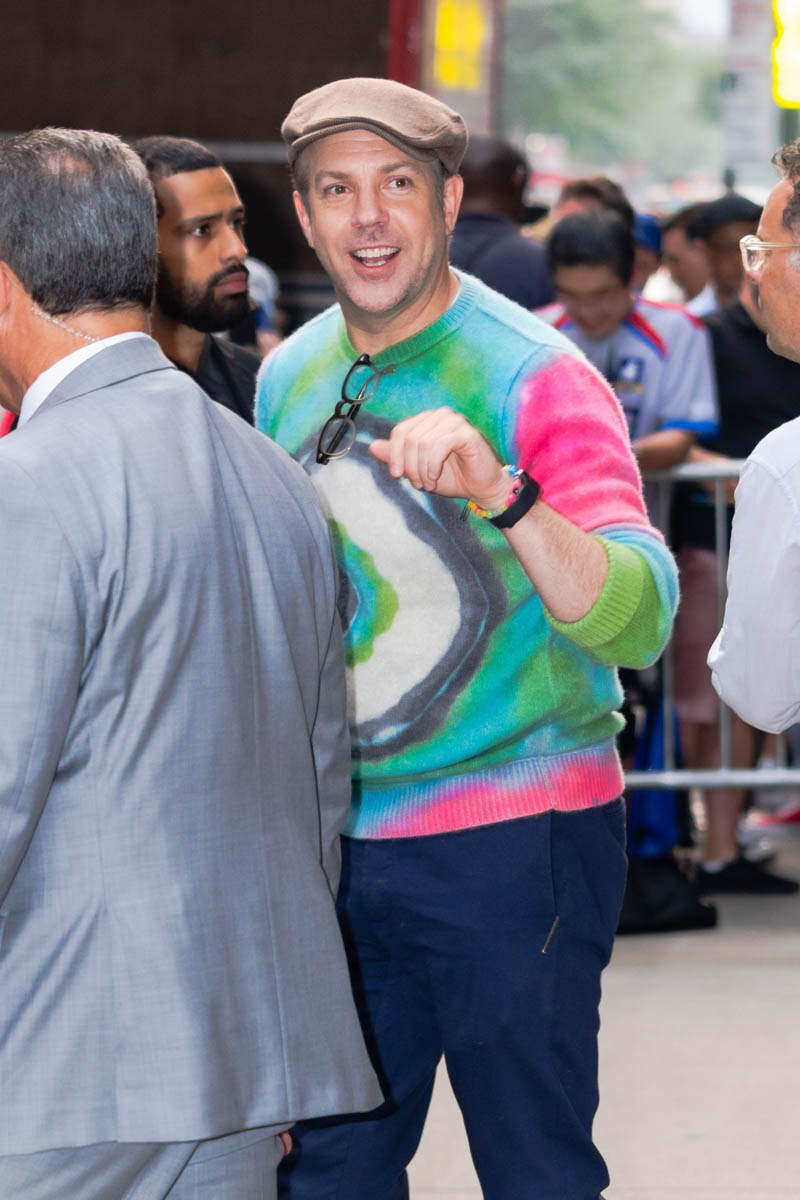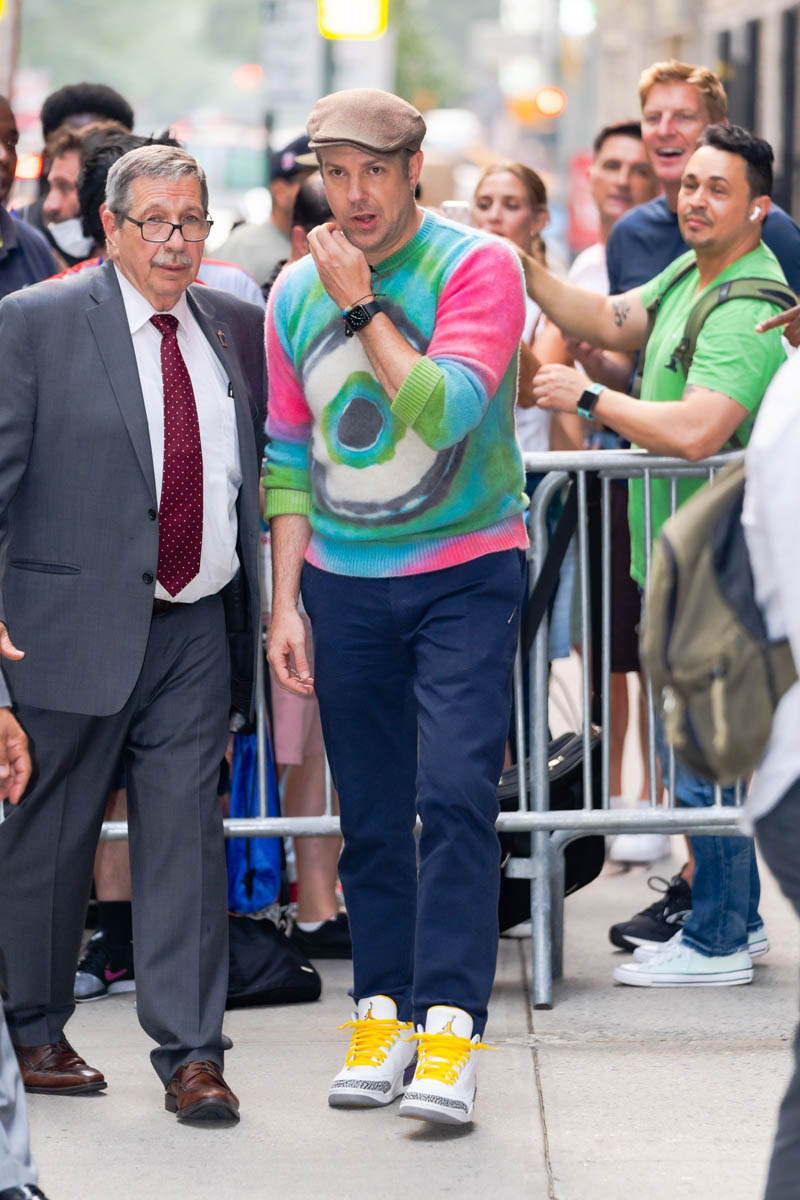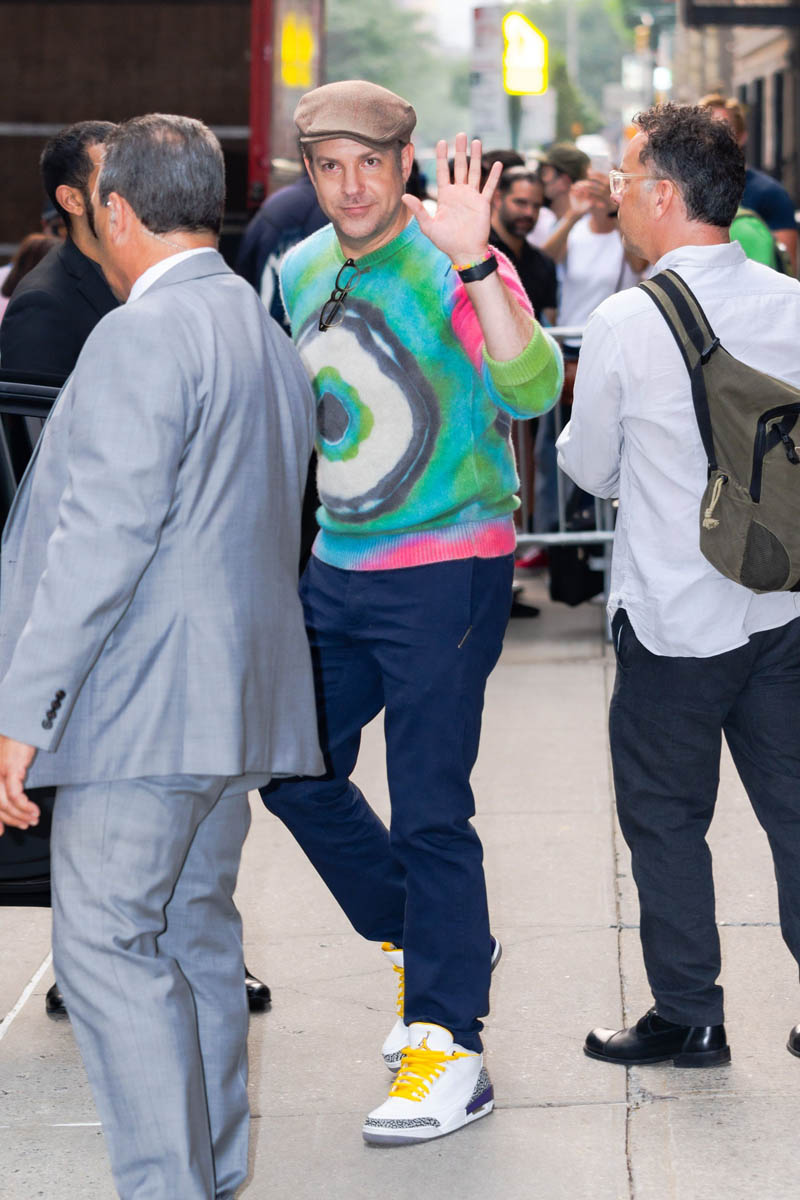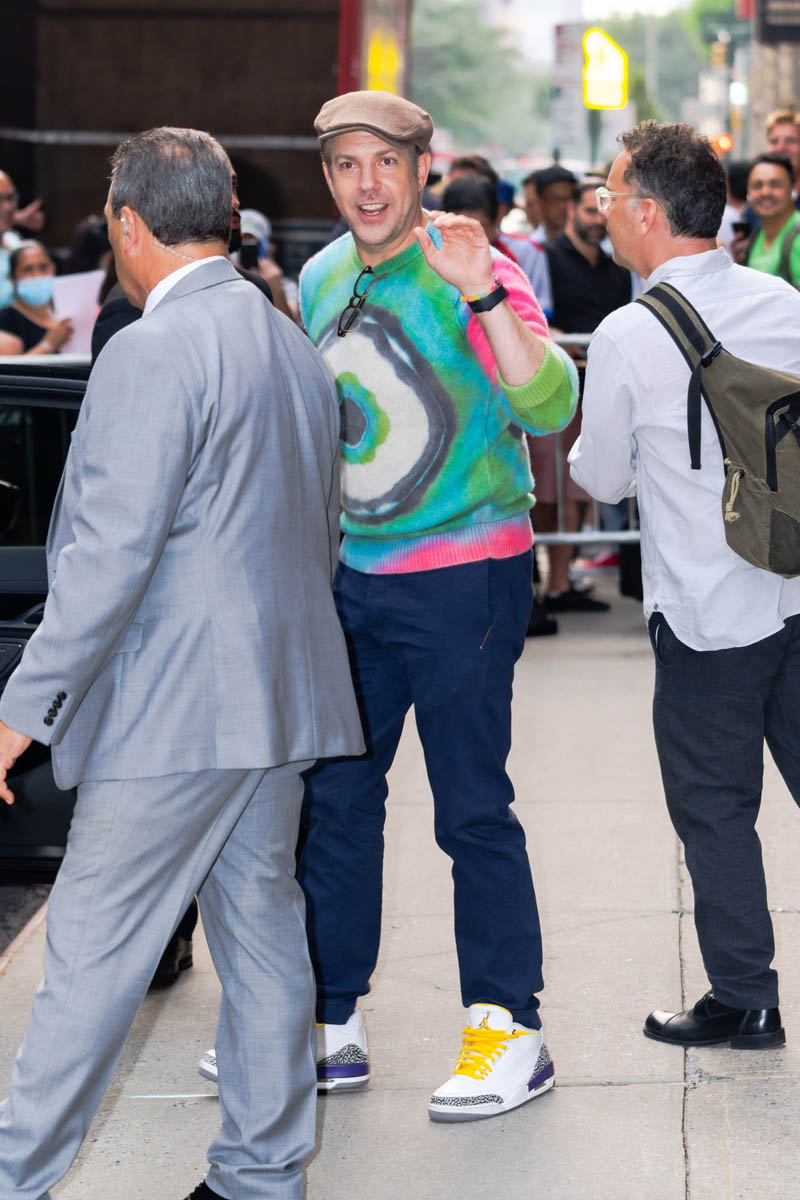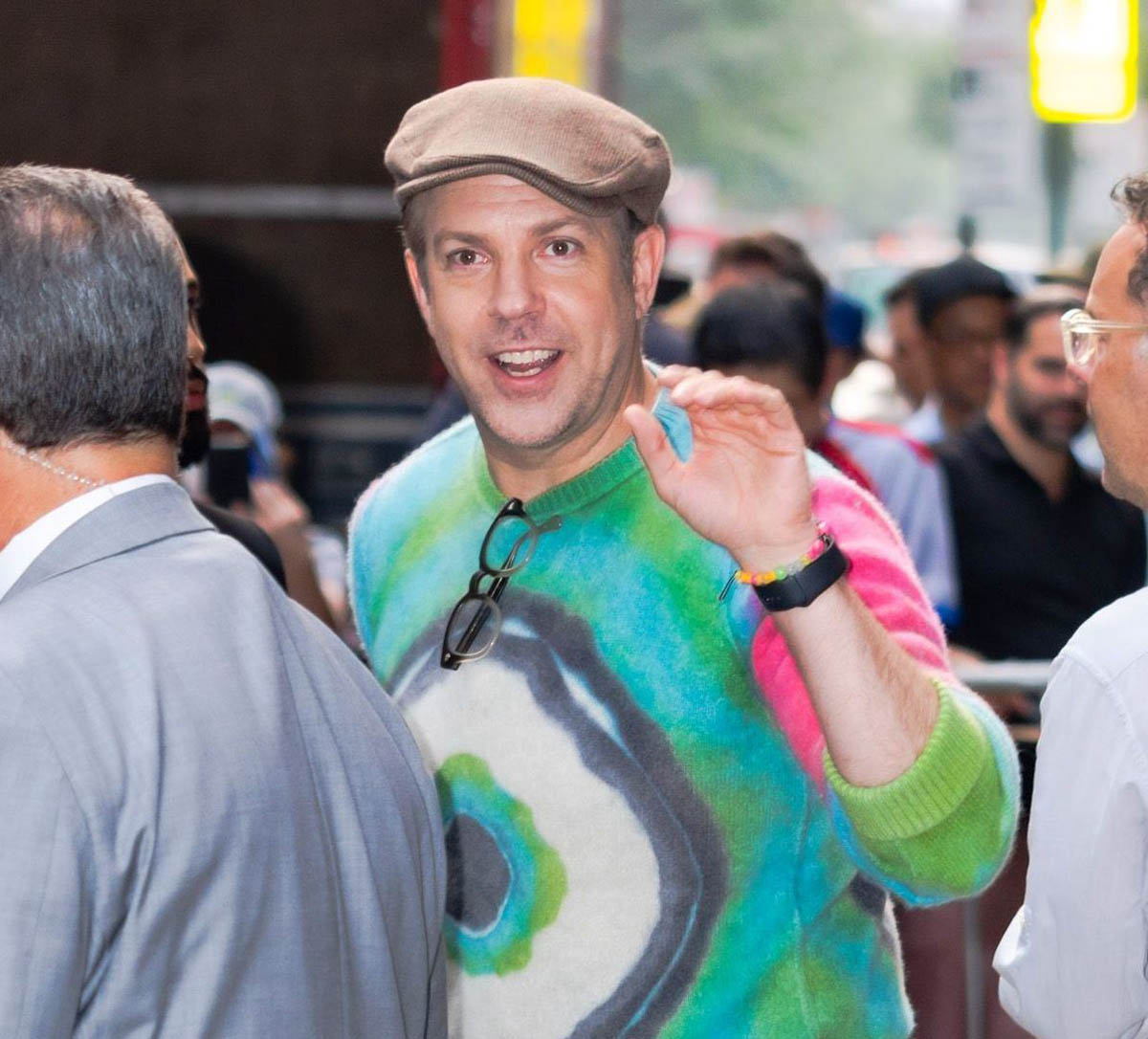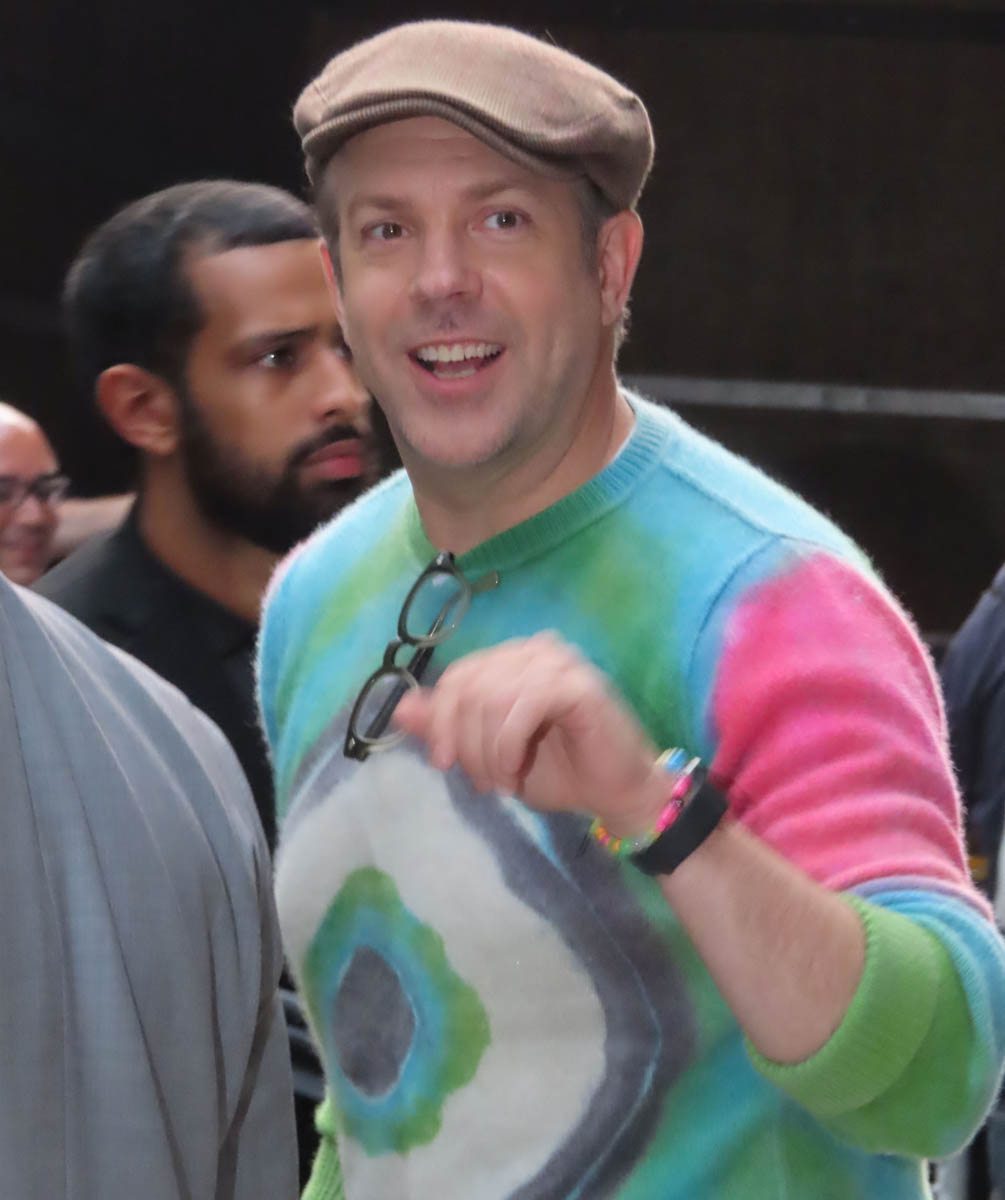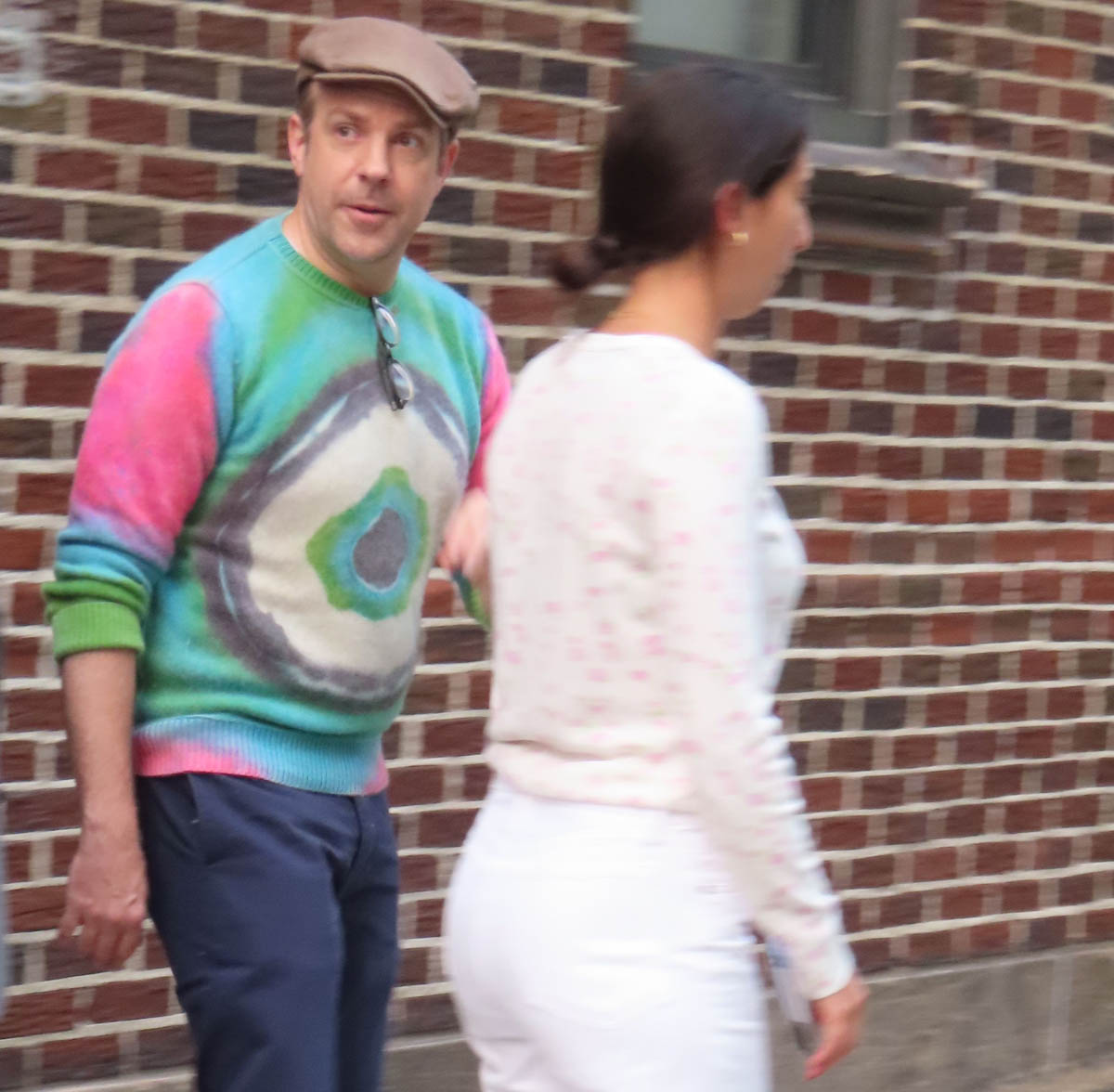Ted Lasso doesn’t miss a beat


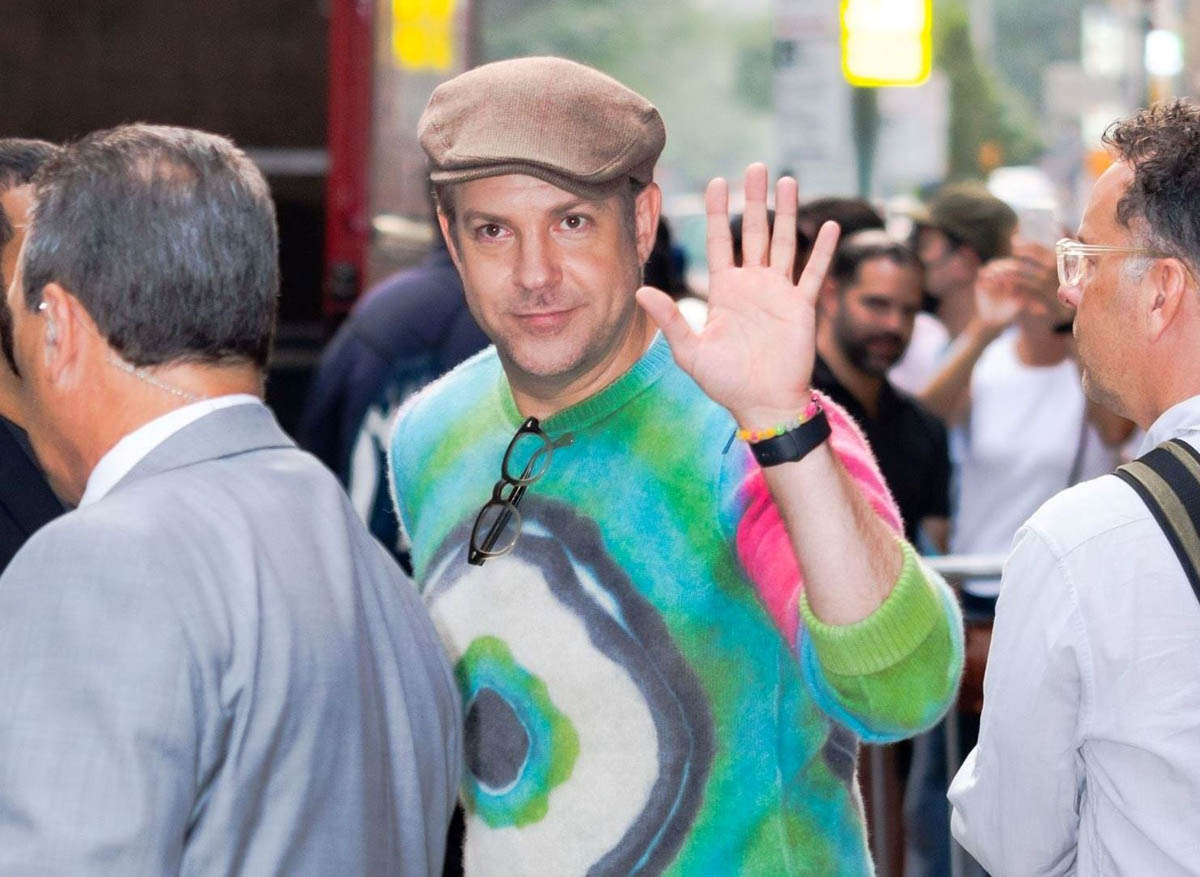
Ted Lasso returns for its second season, and I am so, so relieved to announce that there is no sophomore slump. I repeat: no Ted Lasso sophomore slump. The show doesn’t miss a beat, picking up in the midst of AFC Richmond’s relegation season where they haven’t lost, but they haven’t won, either. After a string of draws, Ted (Jason Sudeikis, even more settled into Ted’s folksy charm) is sure he’s the victim of karma, punishing him for wishing for a tie against Manchester United. Unfortunately, things are about to get worse for Richmond: the irrepressible Dani Rojas (Cristo Fernández) commits an on-field atrocity that sends Richmond’s cheeriest player and ace into a spiral of self-doubt and recrimination. The moment is simultaneously spit-take funny, but it also leads to a classic Ted Lasso Homily, which is the exact brand of comedy-drama the show spent season one perfecting.
The warm hug of Ted Lasso remains intact in season two. The titular character and the show are committed to a particular tone, and season two doubles down on the radical empathy and kindness of season one, but in its sophomore year, Ted Lasso throws some wrenches into the nice machine. For one thing, Dani’s meltdown prompts Higgins (Jeremy Swift) to bring in a sports psychologist, Doctor Sharon Fieldstone (Sarah Niles). She is as no-nonsense as Ted is folksy, and she does not fall for Ted’s charm offensive. Obviously, this throws Ted for a loop, but it also shows his affability as a kind of defensive weapon, one that keeps people from seeing past the down-home wisdom and gentle coaching—on the field and off—to the vulnerable man inside. Added to that is Ted’s suspicion of therapists, as his only experience with therapy is feeling ambushed in couple’s therapy with his ex-wife.
The first episode does a great job not only reassuring the audience that Ted Lasso is not going to slump, but also setting up some long-term issues to explore in a roundabout way. It’s not like Ted and Sharon immediately lock horns, and they don’t hate each other or anything like that. But we saw in the first season that Ted has panic/anxiety issues he’s not exactly forthcoming about, and we know now he is distrustful of therapy/therapists, and his work life is being invaded by a therapist who seems to see right through him. On top of that, he’s got some on-field issues to deal with beyond the wins and losses, as Jamie Tartt (Phil Dunster) is floundering in an especially Jamie way, and that is one broken toy Ted does not want to put down, even if everyone around him is practically begging him to let go. Also, Rebecca (Hannah Waddingham) is getting back in the dating game, Roy Kent (Brett Goldstein) is trying to find his way post-retirement with Keeley (Juno Temple) cheering him on, and Nate the Great (Nick Mohammed) isn’t exactly emulating Ted on the coaching staff.
But! Ted Lasso is still funny! The writing is sharp as ever and chock-a-block with jokes, both verbal and visual, and the cast has settled into a rhythm, playing off each other with swift, assured timing. The jokes and emotional beats land equally well and underpinning all of it is the sense of sitting on a powder keg. Ted has settled into coaching at Richmond, and finally seems to understand the fundamentals of football, but he is also in an unusually defensive position. It’s not so much that he’s under attack, but he’s in a place to lose the esteem he has built at Richmond, with no real outlet for his own issues and emotional burdens, and Sharon lingers in the wings, watching it all unfold. As funny and warm as the premiere episode is, there is still a feeling of rising tension, of uncertainty destabilizing the foundation.
It’s great to have Ted Lasso back, to spend more time with these characters, who are imperfect yet so easy to root for, and to immerse ourselves once again in a show that rejects cynicism even as it acknowledges the difficulty of facing of our own demons. There are other great comedies and other smart shows airing right now, and other strong ensembles performing at a high level, but Ted Lasso is hilarious, smart, and flawlessly executed all at once, and the cherry on top is its own unique style of positivity, which is sincere but not ignorant of the challenges people really face in the world. These characters go through things a simple Ted pep talk won’t solve, and Ted himself might be in need of a helping hand, too. Things don’t always go Ted’s way just because he’s a nice guy, and this season it really feels like the show is wrestling with what it means to choose kindness in a complicated world.
Season one pitched Ted as an underdog, but in season two, even though things aren’t going swimmingly on the pitch, he has gained some acceptance and earned authority that makes him less of an outsider. But because we’re seeing more of the man underneath the attitude, the show finds new ground to cover with the character and reveals depths only hinted at in season one. At least in its first episode, Ted Lasso season two feels like a maturation of the characters and show we met in the first season. It’s that deepening of the characters and peeling back the warm fuzzies of the premise that makes season two feel so rich, and helps the show avoid a sophomore slump. That, and a relentless commitment to perfectly timed jokes. This show was a pleasure to watch before, but with every aspect of the production firing on all cylinders, it’s an absolute thrill now.
Ted Lasso streams new episodes every Friday on Apple TV+.
Attached - Jason Sudeikis at The Late Show this week in New York.

